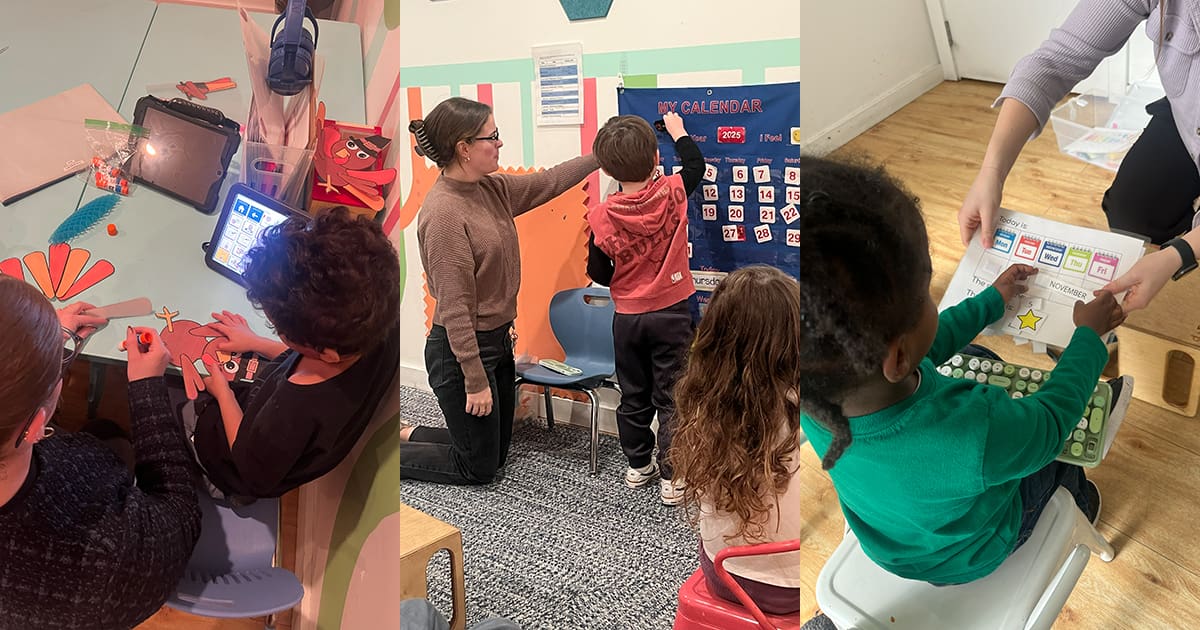Share this Post

For many children, mealtime is a natural and enjoyable part of the day. But for some, especially those with sensory sensitivities, developmental delays, or feeding difficulties, eating can feel overwhelming. Children with autism, sensory processing disorders, or oral motor challenges may struggle with certain food textures, have a limited diet, or experience anxiety around mealtimes.
This is where feeding therapy in a therapeutic preschool program can make a life-changing difference. With the right support, children can develop the skills and confidence needed to expand their diet, enjoy meals, and establish healthy eating habits.
At CST Academy, feeding therapy is integrated into our therapeutic preschool program, providing children with a nurturing and structured approach to mealtime. This article will explore what feeding therapy is, how it works in a preschool setting, and how it helps children overcome challenges to build a positive relationship with food.
What is Feeding Therapy?
Feeding therapy is a specialized intervention designed to help children who have difficulty eating, chewing, swallowing, or accepting a variety of foods. It is led by trained professionals, such as occupational therapists, speech therapists, or feeding specialists, who use evidence-based techniques to improve oral motor skills, sensory processing, and mealtime behaviors.
Children may benefit from feeding therapy if they:
- Have a limited diet, eating only a few preferred foods.
- Struggle with certain textures, tastes, or temperatures of food.
- Have difficulty with chewing, swallowing, or using utensils.
- Experience anxiety or sensory discomfort around meals.
- Have a history of gagging, choking, or vomiting during eating.
By addressing the underlying causes of feeding difficulties, therapy helps children feel more comfortable and confident at mealtime.
The Role of Feeding Therapy in a Therapeutic Preschool Program
A therapeutic preschool setting is the perfect environment for feeding therapy because it naturally integrates learning, socialization, and structured routines. At CST Academy, our feeding therapy program works in collaboration with other therapeutic services, such as speech therapy, occupational therapy, and behavioral support, to ensure a holistic approach to mealtime challenges.
Here’s how feeding therapy is incorporated into the preschool day:
1. Sensory Exploration to Reduce Food Aversions
Many children with autism or sensory sensitivities struggle with food textures, temperatures, or smells. Feeding therapy introduces sensory play to help children become more comfortable with different food experiences in a low-pressure way.
Activities may include:
- Touching and smelling new foods before eating them.
- Engaging in sensory bin activities with food-like textures (e.g., playing with dry rice, pasta, or soft fruits).
- Using messy play to explore food textures without the expectation of eating.
This approach desensitizes children to new foods and allows them to gradually feel more comfortable trying them.
2. Oral Motor Strengthening for Chewing and Swallowing
Some children struggle with chewing or swallowing due to low muscle tone or coordination difficulties. Feeding therapy includes exercises that build oral motor strength and control, making it easier for children to eat a wider variety of foods.
Therapists use:
- Chewing exercises with therapy tools like chewy tubes.
- Blowing activities (such as blowing bubbles or whistles) to strengthen oral muscles.
- Tongue and lip exercises to improve movement and coordination.
Developing stronger oral motor skills helps children chew effectively and transition to more advanced food textures.
3. Positive Mealtime Strategies to Reduce Anxiety
For children who experience stress or resistance at mealtime, a structured and supportive approach helps make eating a more positive experience.
Feeding therapy uses:
- “Food chaining” techniques, where small changes are introduced to expand food choices.
- Routine-based meals and snack times to create predictability and comfort.
- Modeling and peer interaction, where children see others trying new foods, making them more likely to participate.
Encouraging children to take small steps in a no-pressure environment helps reduce mealtime anxiety and build confidence.
4. Teaching Self-Feeding and Independence
A major goal of feeding therapy in a therapeutic preschool program is to help children become more independent eaters. Children practice using:
- Spoons, forks, and open cups to improve utensil use.
- Hand-over-hand guidance for children learning to self-feed.
- Structured routines and visual supports to encourage mealtime participation.
These skills empower children to take control of their eating habits and gain independence.
The Benefits of Feeding Therapy for Children with Autism
Feeding therapy provides long-lasting benefits that extend beyond the classroom and into daily life at home.
1. Expanding Food Choices and Nutrition
Many children with feeding difficulties eat only a small selection of foods, which can lead to nutritional gaps. Feeding therapy helps introduce new foods in a gradual, supportive way, ensuring children receive essential nutrients for growth and development.
2. Reducing Stress for Parents and Families
Mealtime struggles can be exhausting for families. With feeding therapy, children learn to approach food more positively, reducing power struggles and creating a more peaceful mealtime experience at home.
3. Supporting Sensory Regulation
By working through food sensitivities, children become more comfortable in various sensory environments, which improves overall regulation and flexibility in different situations.
4. Enhancing Speech and Oral Motor Skills
Eating and speaking use many of the same muscles. Strengthening oral motor skills for feeding can improve articulation, communication, and overall speech development.
How CST Academy’s Therapeutic Preschool Integrates Feeding Therapy
At CST Academy, we believe that mealtime should be a positive, engaging, and successful experience for every child. Our therapeutic preschool program seamlessly integrates feeding therapy into the daily routine, ensuring that children receive the support they need in a structured and social environment.
What sets our program apart:
- Individualized feeding plans tailored to each child’s needs.
- Collaboration with speech and occupational therapists to address feeding challenges holistically.
- Sensory-friendly strategies to create a comfortable eating environment.
- Parent education and support, so families can continue progress at home.
Through our compassionate and evidence-based approach, we help children develop lifelong healthy eating habits and a positive relationship with food.
How to Know if Your Child Could Benefit from Feeding Therapy
If your child:
- Eats a very limited variety of foods
- Struggles with chewing or swallowing
- Shows strong reactions to certain food textures or smells
- Has difficulty using utensils, cups, or self-feeding
- Becomes anxious or upset at mealtimes
Then feeding therapy could be a helpful step in expanding their diet and improving their eating skills.
Final Thoughts: Helping Every Child Enjoy Mealtime
Mealtime should be a positive, stress-free experience, but for many children with feeding challenges, it can feel overwhelming. Through feeding therapy in a therapeutic preschool setting, children can develop the skills, confidence, and comfort they need to enjoy food, nourish their bodies, and participate in mealtime routines with ease.
At CST Academy, we are dedicated to helping every child thrive—one meal at a time. If you’d like to learn more about how our feeding therapy program can support your child’s growth, we invite you to schedule a consultation and see how we can help.
Together, we can make mealtime a joyful and successful experience for your child.
Discover Our Pediatric Therapy & Autism Care
ABA Therapy
Support for children with autism.
Autism Evaluation
Expert assessments to identify child needs.
Pediatric Therapy Services
Speech, Occupational, Feeding, and Physical Therapy.
Therapeutic Preschool
A classroom environment designed for early learners with unique needs.

Find the Best Care for Your Child




